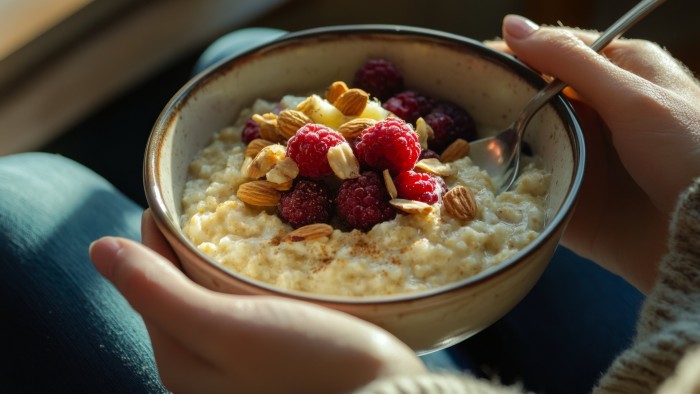Unlock the Editor’s Digest for free
Roula Khalaf, Editor of the FT, selects her favourite stories in this weekly newsletter.
Unhealthy versions of breakfast cereals including muesli, porridge oats and granola will be included in a UK junk food advertising ban from next year.
Pitta bread snacks, rice cakes, tea and coffee with added sugar also fall within the regulations that prevent unhealthy food being advertised online or before 9pm on TV.
The UK government wants to reduce children’s exposure to foods high in fat, sugar or salt to tackle obesity-related diseases such as diabetes.
Ministers said that 7.2bn calories per year were expected to be removed from UK children’s diets, preventing an estimated 20,000 cases of childhood obesity.
Health secretary Wes Streeting said: “Obesity robs our kids of the best possible start in life, sets them up for a lifetime of health problems and costs the NHS billions.”
New rules on Tuesday revealed the scope of the restrictions, covering products from ready meals, stuffed pasta, granola, oat-based cereals and confectionery to soft drinks, ice cream and pizza.
Savoury snacks such as crisps, pitta bread based snacks, rice cakes, pretzels, poppadoms and salted popcorn fall within the regulations.
One in eight toddlers and primary school children are obese, according to NHS data, while one in five children have tooth decay because of excess sugar consumption.
NHS England national medical director professor Sir Stephen Powis said this level of childhood obesity was “also storing up problems for a future NHS which already spends billions dealing with the issue”.
Marketing executives have questioned how effective the ban will prove, while warning it will also take away crucial advertising revenues for media groups.
“As the government’s own impact assessment makes clear, the impact of this policy in reducing the daily calorie intake of an average child will be minimal at best while potentially costing our sector millions of pounds,” the Advertising Association said.
“This will have an inevitable impact on the creative industries and wider economic growth that advertising plays a key role in driving.”
To fall within the pre-watershed ban, products must be in one of the categories listed and also need to be deemed unhealthy through a scoring system that measures energy, saturated fat, total sugar and sodium against more beneficial nutrients.
For example, natural yoghurt and unsweetened yoghurt could be allowed, while yoghurt products including flavoured Greek-style versions as well as probiotic, kids, fat free and low-fat and drinking yoghurts could be prohibited.
The Food and Drink Federation said that the advertising regulator still needed “to publish its implementation guidance as soon as possible to ensure businesses have all the information needed to comply”
Read the full article here

